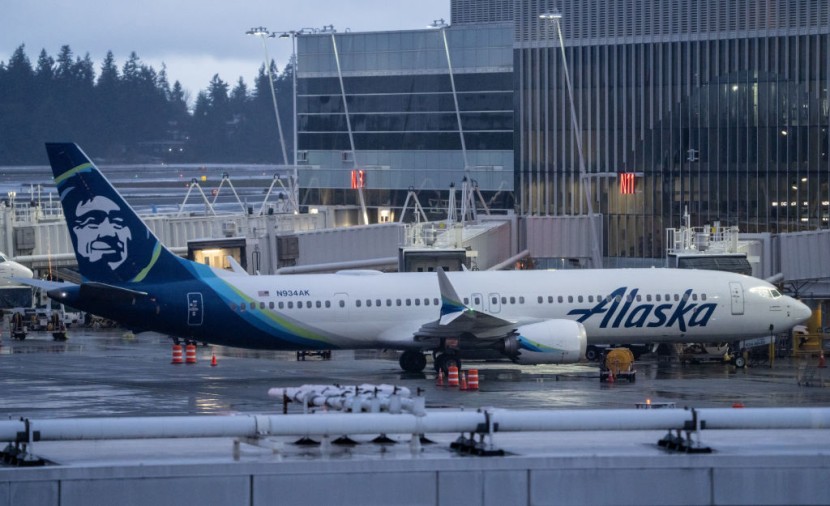An Alaska Airlines flight made an emergency landing in Oregon, United States, when an outside portion of the aircraft came off minutes after taking off from the Portland airport on Friday, Jan. 5.
Following the terrifying event, which prompted the temporary suspension of the 737 Max 9 airplanes by federal regulators, Boeing is once again under fire for the safety of its best-selling airliner.
Any 737 Max 9 aircraft flown by US airlines or foreign carriers into US airspace must undergo urgent inspections, according to the Federal Aviation Administration (FAA). The agency's emergency order impacts about 171 planes globally.
NEW: A piece of the wall on an Alaska Airlines flight popped off mid-flight as the plane was traveling from Portland to Ontario, California.
— Collin Rugg (@CollinRugg) January 6, 2024
This is terrifying.
After about 35 minutes into the flight, the side panel of the plane came off, reportedly sucking out passengers’… pic.twitter.com/7lDTgAPF1h
Window Breach in Alaska Airlines' Plane
Just seven minutes after taking off from Portland, a glass panel on an Alaska Airlines 737 Max 9 burst off, leaving a big hole in the side of the plane. A surprisingly unharmed 171 passengers and six crew members survived the abrupt decrease in cabin pressure, which sent oxygen masks dropping from the ceiling. The pilots accomplished a successful emergency landing.
Aside from the FAA, the National Transportation Safety Board (NTSB) also investigates the event that occurred on Friday.
In a statement, Boeing expressed its agreement with the FAA's decision to mandate rapid inspections and offered technical assistance to the investigators.
The aircraft that was involved in the Friday incident is reportedly brand-new. According to flight-tracking website Flightradar24, it started transporting passengers in November 2023 and has only completed 145 flights so far.
In a report by PerthNow, aerospace expert and consultant Richard Aboulafia said Boeing would be under increased pressure to alter its procedures and delay the delivery of new aircraft if the Alaska Airlines window rupture was determined to be a manufacturing fault.

Boeing Is Under Scrutiny Again
Developing a brand-new aircraft to replace the 737 was something Boeing contemplated over a decade ago. However, to avoid falling behind European competitor Airbus in sales, Boeing opted for the easier route of making minor adjustments to the 737, giving birth to the Max series.
In 2018, a Lion Air Max 8 plane went down in Indonesia, and in 2019, an Ethiopian Airlines Max 8 also crashed. As Boeing modified an automatic flight control system linked to the disasters, regulators globally grounded the jets for over two years.
Congress and federal prosecutors questioned Boeing's motives for expediting the Max approval process with minimal pilot training requirements. As part of a criminal settlement in 2021, Boeing paid $2.5 billion, which included a $244 million fine.
Chicago attorney Robert Clifford, who is representing the relatives of the victims of the Ethiopian tragedy, said that Friday's event made one wonder whether authorities were hasty to allow Max aircraft to fly again. Boeing, he said, prioritized money above safety. "This is a company that went from being the gold standard in engineering expertise and precision to now a company that seems like it's at the bottom of the barrel," he added, as reported by PerthNow.
© 2026 HNGN, All rights reserved. Do not reproduce without permission.








